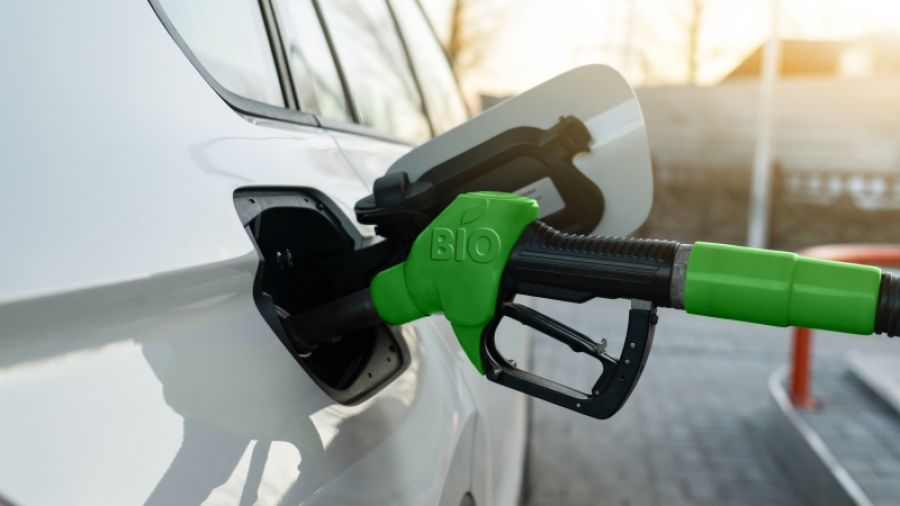The ambition of the EU is to be climate neutral by 2050 and the European refining industry supports this ambition by making the case for low carbon liquid fuels.
The transport sector is responsible for almost 25% of Europe’s greenhouse gas emissions. Its decarbonization entails unique challenges, according to FuelsEurope. The organisation represents companies operating refineries in the EU that account for almost 95% of EU petroleum refining capacity and more than 75% of EU motor fuel retail sales.
At a webinar organised by The Brussels Times last week in collaboration with FuelsEurope, John Cooper, the Director General of FuelsEurope, replied to questions about low-carbon liquid fuels. Their emergence in recent years raises a number of questions about their sustainability, emissions reduction potential, feedstock availability, and technical requirements, and market potential.
In parallel, the European Commission is also working on the topic. Last year, it launched a public consultation on the establishment of a new industrial alliance focused on boosting the supply and affordability of renewable and low-carbon gaseous and liquid fuels. All modes of transport need to have easier access to renewable and low-carbon fuels, according to the Commission.
“The accelerated uptake of such fuels is fundamental in our push to decarbonize transport, in particular the aviation and waterborne sectors,” commented Commissioner Adina Vălean, responsible for mobility and transport. The consultation was closed in November 2021 but the results are not yet ready, a Commission spokesperson told The Brussels Times.
The organisation that John Cooper represents expects the Commission to take the lead. “The Commission needs to send a clear signal to the industry and investors that there will be a demand for these fuels in at least the next 10 years,” he said at the webinar.
For customers, it’s important that they won’t be more expensive than the fuel prices before today’s energy crisis. This would require less taxation than on fossil fuels and other incentives to be adopted by the EU member states. In a report last year, FuelEnergy recommended further studies of the cost-effectiveness of various options from the perspective of the final consumers in the market.
The advantage of low carbon liquid fuels is that they can used by internal combustion engines fuelled by petrol and diesel. The first generation of biofuels used to blend with fossil fuels were controversial, he admits, because their production competed with food production. Doubts were also raised whether they really were climate-neutral.
Since then, liquid fuels based on other feed stocks such as unused or wasted biomass or produced by electrolysis of hydrogen in combination with carbon (e-fuels), have been developed and need to be scaled up, according to Cooper.
He is convinced that there is enough biomass in Europe. “Many of our members are already producing significant quantities of these fuels, largely from biomass from agriculture and forestry. We intend to produce low carbon liquid fuels from domestic biomass which otherwise would be wasted or burnt. If this is possible in Europe, it can also be done elsewhere.”
Compared to the carbon in fossil fuels, which has been stored for millions of years, the carbon in the low carbon liquid fuels is taken from the atmosphere, not released to it, and part of a still on-going cycle. “Nothing in society is truly carbon-free,” he says. “Even wind power has a carbon footprint from installation and maintenance. The production of e-vehicles and batteries has also a carbon footprint.”
He underlines the social dimension of the new fuels. “The cost of electric vehicles is rising and only wealthy people can afford them, resulting in an economic divide in society.” With the right taxation, people can afford low carbon liquid fuels and continue to buy new or used non-electric cars, thus reducing the carbon footprint in the road sector.”
“These new fuels should be seen as complementary to e-mobility, at least during the transition period. It would be a missed opportunity not to scale up their production and make them affordable on the market.” He expects that they will account for up to 30 % of the fuels in the transport sector in the long term.
He concludes that the potential availability of sustainable biomass is more than sufficient to allow advanced and waste-based biofuel to contribute, together with e-fuels, to the decarbonization of EU transport in line with the 2050 climate neutrality objective. “Together with electrification and hydrogen, low-carbon liquid fuels will enable EU transport to reach its 2050 objective without leaving anybody behind.”
The Brussels Times

